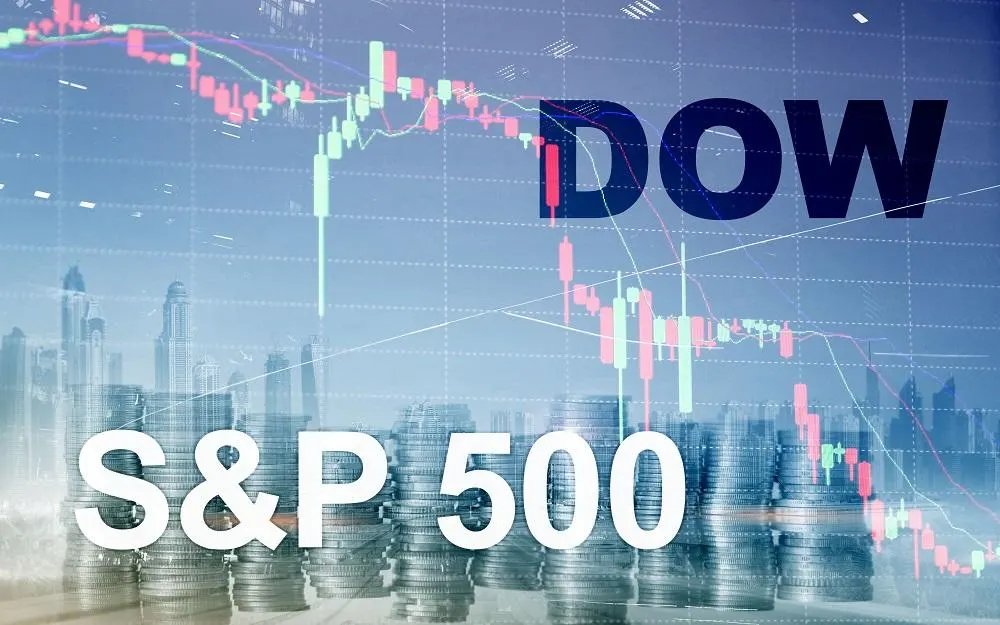Dow and S&P 500 Reach New Record Highs, Driven by Netflix Earnings and Tech Stocks Surge

On Friday, both the Dow Jones Industrial Average and the S&P 500 closed at new record highs, bolstered by impressive earnings from Netflix and a rally in technology stocks. The Nasdaq also ended the day in positive territory, contributing to a sixth consecutive weekly gain for all three major Wall Street indices—their longest winning streaks since late 2023.
For the week, the S&P 500 advanced 0.9%, the Nasdaq Composite added 0.8%, and the Dow rose by 1%. A significant driver of Friday’s performance was Netflix, which surged 11.1% to a record closing high after exceeding Wall Street’s expectations for subscriber growth and projecting continued expansion through the end of the year.
Tech stocks, particularly the “Magnificent Seven,” continued to push the broader market upward. Apple saw a 1.2% increase, spurred by robust iPhone sales in China, while Nvidia climbed 0.8% following an optimistic price target increase from BofA Global Research. The rise in Netflix shares also helped lift the communication services sector, which gained 0.9%, the top performer among the 11 S&P 500 sectors. The information technology sector saw a 0.5% increase.
David Waddell, CEO of Waddell & Associates, summed up the market sentiment, describing it as a “what’s not to like” scenario, pointing to favorable economic data, lower inflation, and positive corporate earnings.
At the close of the session, the S&P 500 rose 23.20 points (0.40%) to 5,864.67, while the Nasdaq gained 115.94 points (0.63%) to end at 18,489.55. The Dow closed at 43,275.91, rising 36.86 points (0.09%). This marked the fifth record closing for the Dow in the past six sessions, though gains were tempered by a 3.1% decline in American Express, which missed quarterly revenue expectations.
Financial companies have largely enjoyed a successful earnings season, though the S&P Banks index slipped 0.1%, breaking a five-day winning streak. Despite this, positive earnings reports and solid economic data have continued to sustain the upward momentum in the market.
However, analysts have cautioned that stretched valuations could leave stocks vulnerable to a pullback, particularly with the S&P 500 trading at nearly 22 times forward earnings. The looming Nov. 5 U.S. presidential election could also introduce volatility. Despite these concerns, David Waddell expressed confidence that strong earnings could override any political uncertainty or valuation concerns.
“We’ve reached the limit of gains from multiple expansion, so the future trajectory depends on earnings. We are priced for very strong earnings, and any disappointment could cause market disruptions. However, barring a recession, the bull market remains intact,” Waddell stated.
Investors have also shown increased interest in small-cap stocks, with both the Russell 2000 and S&P Small Cap 600 outperforming the larger indices for the week, though both were slightly down on Friday.
The energy sector was the only S&P sector to decline on Friday, dropping 0.4%. Lower oil prices and a 4.7% drop in SLB, which missed earnings expectations, dragged down other oilfield service providers like Baker Hughes (-1.3%) and Halliburton (-2.1%). The energy sector ended the week as the worst performer, losing 2.6%, weighed down by a 7% decline in U.S. crude prices due to concerns over Chinese demand and the conflict in the Middle East.
In the healthcare sector, CVS Health dropped 5.2% after announcing the replacement of CEO Karen Lynch with veteran David Joyner and withdrawing its 2024 profit forecast. This news also impacted other health insurers, with Cigna and Elevance Health both seeing declines, the latter closing at its lowest level in nearly 15 months.
Trading volume on U.S. exchanges totaled 10.62 billion shares, below the 20-day average of 11.56 billion shares.





















